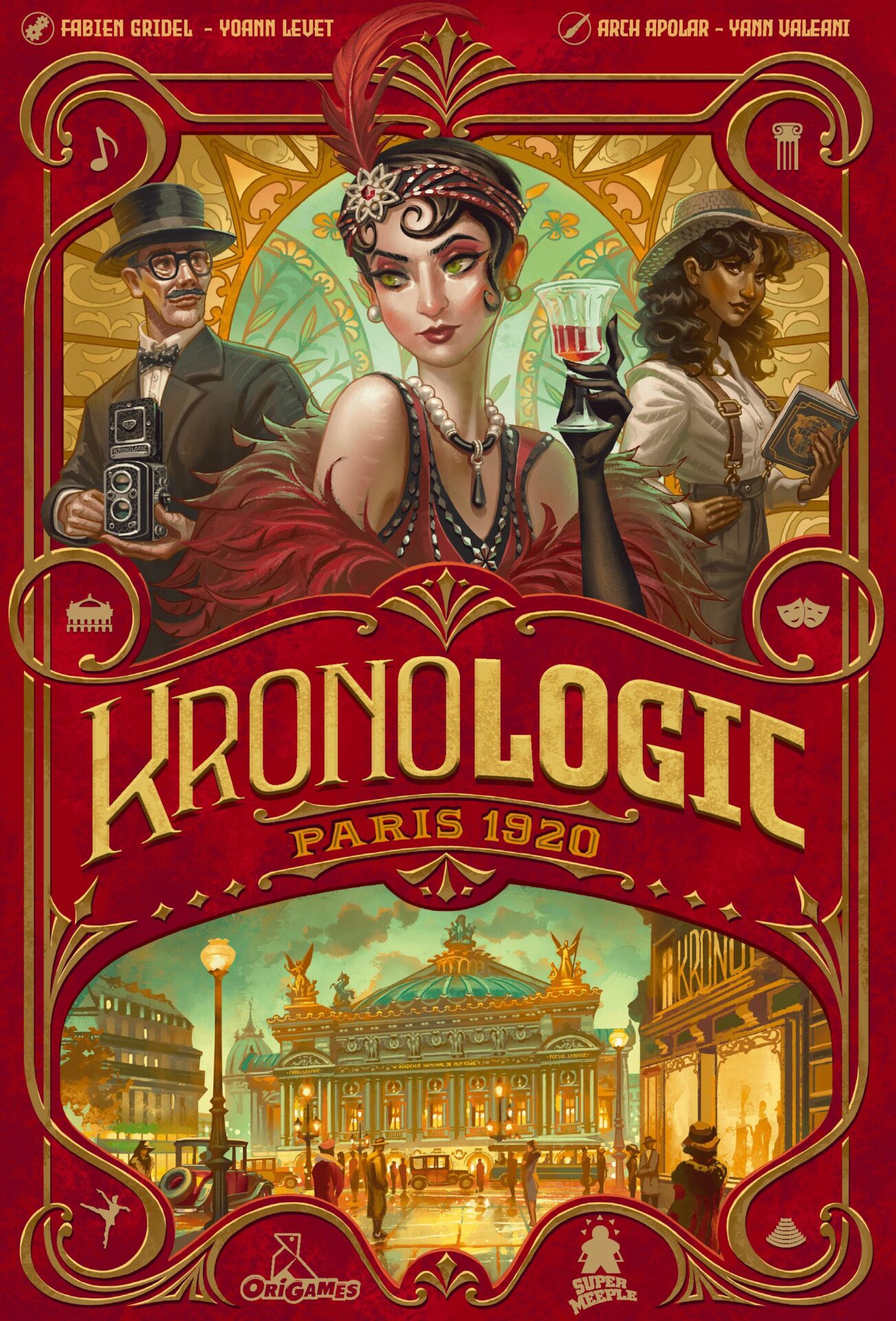A review copy of Kronologic was kindly provided by Hachette Boardgames UK. Thoughts & opinions are my own.
Kronologic takes an alternative angle on the murder mystery genre that Clue (Cluedo for my UK chums) locked down for so long. It’s an excellent game built on a couple of basic principles of figuring out who was where, and at what time. The designers have built the game on the back of a cool card masking gimmick, helping it deliver a cracking deduction game in half an hour. Think Clue meets The Search for Planet X (read my review of that here) and you’re getting somewhere close.
Loop the loop
Have you ever read a book or watched a film where someone is trying to solve a mystery, but the story jumps around in time? Films like Triangle, Timecrimes, and Predestination, or the excellent book The Seven Deaths of Evelyn Hardcastle for example. Kronologic leans into this idea by placing you in the role of a detective trying to solve a murder. Each mystery has six snapshots of time and six characters that you can interrogate by asking about a specific room. This is where the cool gimmick comes in.
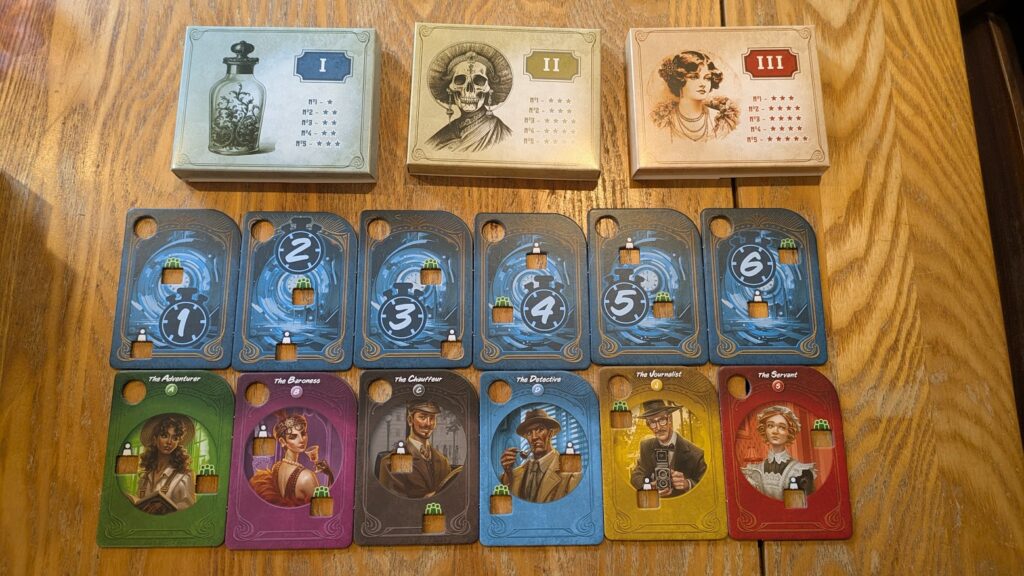
Every room in the game has a card per investigation. Each of the six times you can ask about has a cardboard tile with some holes cut in it, and the same goes for the characters. You pick up the card of the place that you want to know about and put it behind the time or person card, and some information is revealed in the little windows. There’s a piece of information that you read out to everyone, and an extra piece that you keep to yourself. This is where you start seeing comparisons with Clue and The Search for Planet X. Making the most of the public knowledge is the key to doing well, even if it’s often the hardest to distil down to something meaningful.
There are some basic rules for the movement of the characters in the game, which each scenario sets out for you at the beginning. By combining this knowledge with knowing who was in a space at a given time, or how many times someone passed through a space, you can employ some Sherlockesque logic to determine at least who couldn’t have done it, if nothing else.
Field notes
It’s all very well having all of this information, but how do you record it and parse it to make some kind of sense of it all? Kronologic has a solution in a pad of tear-off sheets. The sheets have a room plan for each time snapshot and a suggested notation for noting how many people, and which people are present at each time. There’s another part of the sheet that lets you track how many times each person visited each room.
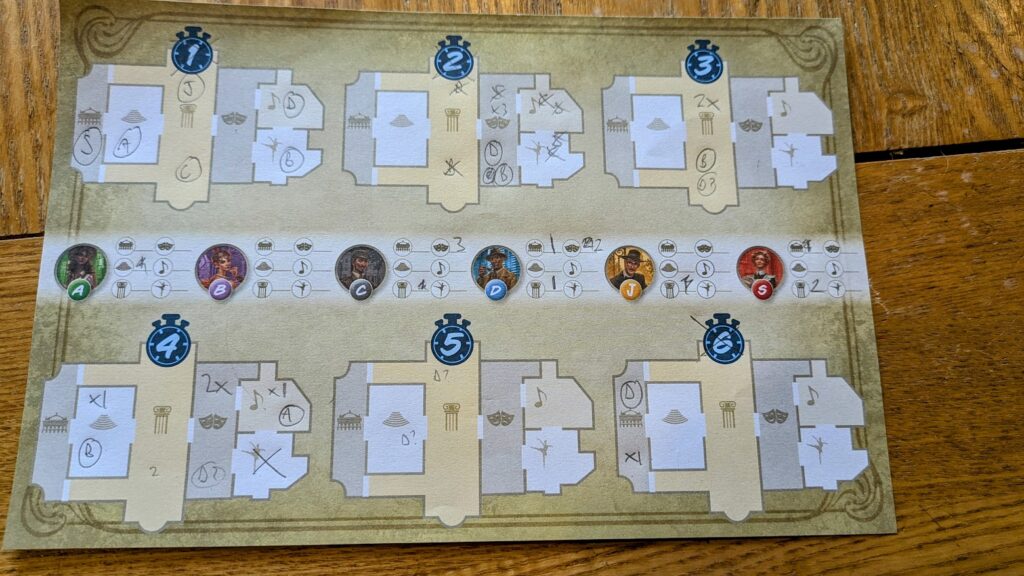
When you hear it laid out like that, it all sounds pretty simple. There’s a predetermined way to fill in the sheet, so just fill it all in and you’ll know the solution, right? Well, yeah, but if you wait until you know everything it’ll likely be too late. A big part of the game is engaging some logic to fill in the gaps. Fanciful words, but they don’t really help you, so let me give you a spoiler-free example.
In one of the early scenarios, you’re told where each character is in the first time frame. Later you learn that one specific character visited the gallery three times. We can unpack that to learn a lot of things. The movement rules say that each person has to move each time, and it also says they can only move into an adjacent room. So we know this particular character was in the gallery in each of the even-numbered times. We also know they were never in a room which isn’t adjacent to the gallery.
Enjoying this article? Consider supporting me.
By the time you combine this knowledge with the other things you learn, you can already eliminate some potential suspects and scenes of the crime. It’s not easy, and it’s not a game I’d attempt while knocking back a few beers on a Friday night. If you’re not switched on, and somebody else around the table is, you’re in trouble.
Final thoughts
Kronologic is a great deduction game. I’ve had a really good time with it. I like the fact the cases get gradually harder, and I like the fact there are three boxes of cases to work through. Despite the fact that it’s a small box game, there’s a lot of entertainment inside that’ll keep you going for a decent amount of time. It’s no secret that I love a mystery. I’ve covered loads of them here on Punchboard, and Kronologic sits happily alongside them.
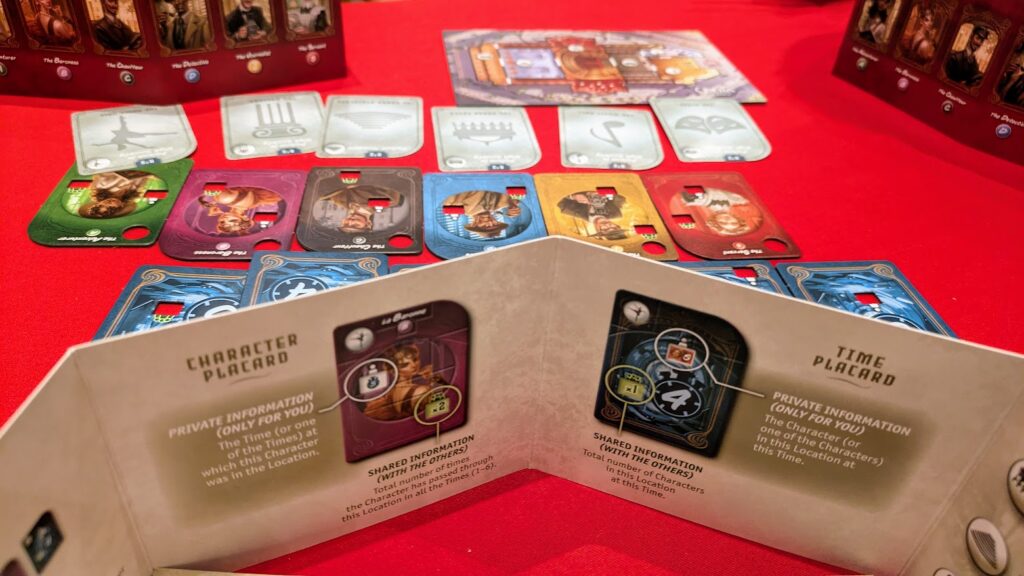
In truth, it’s closer to The Search for Planet X than a traditional mystery, but I like that. Logic puzzles are really enjoyable to me, so Kronologic tickles my brain in all the right places. A word of warning however. If someone in your group or family doesn’t like this sort of game, they’re likely to have a horrible time with it. It’s the essence of a logic puzzle boiled down to such a degree that despite the best efforts of the writers and illustrators, the theme is really redundant. You have no emotional investment or preference over any of the characters because it just doesn’t matter. If you don’t have the kind of brain that gets enjoyment from disseminating order from the chaos of the clues, you won’t enjoy this game.
For the rest of us though, the people who’ve made it this far through the review and like the sounds of this game, I think you’ll love it. It’s a really satisfying puzzle crammed into 30 minutes of intense thinking and deduction. The little player screens are both practical and informative. They explain your actions in the game on the inside, and the outside has a guide which ties the logos and letters to the rooms and characters respectively. Kronologic: Paris 1920 is great, and I can’t wait to see what they do with the next titles in the series, Cuzco 1450 and Babylon 2500.
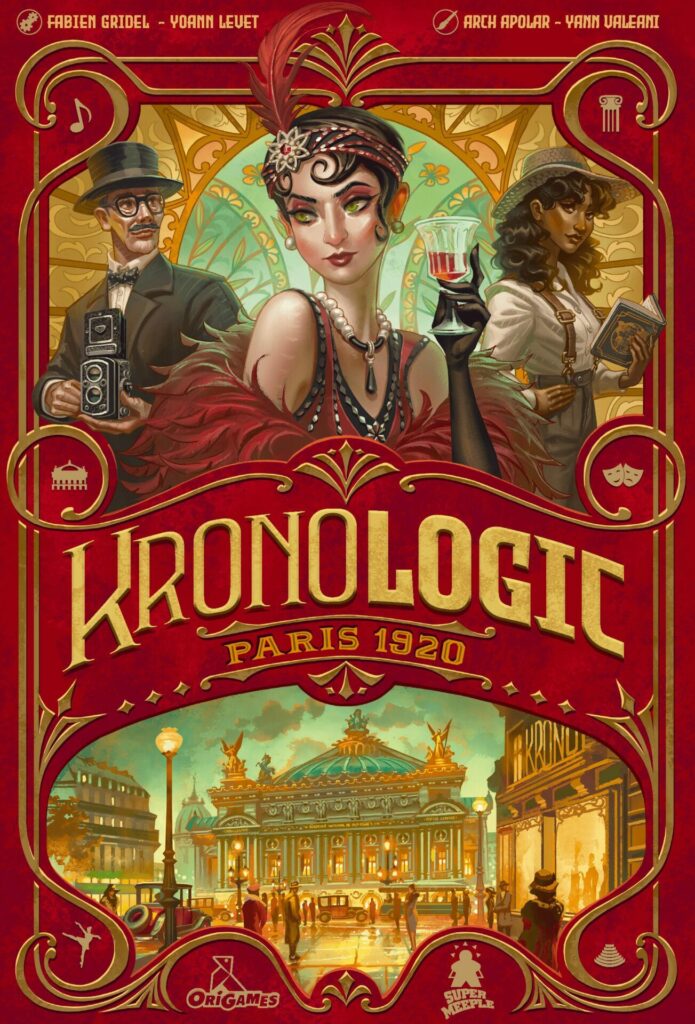
Kronologic: Paris 1920 (2024)
Design: Fabien Gridel, Yoann Levet
Publisher: Super Meeple, Origames
Art: Arch Apolar, Yann Valéani
Players: 1-4
Playing time: 30 mins
Adam is a board game critic with over 15 years of experience in the hobby. A semi-regular contributor to Tabletop Gaming Magazine and other publications, he specialises in heavyweight Euro games, indie card games and transparency in board game media.

